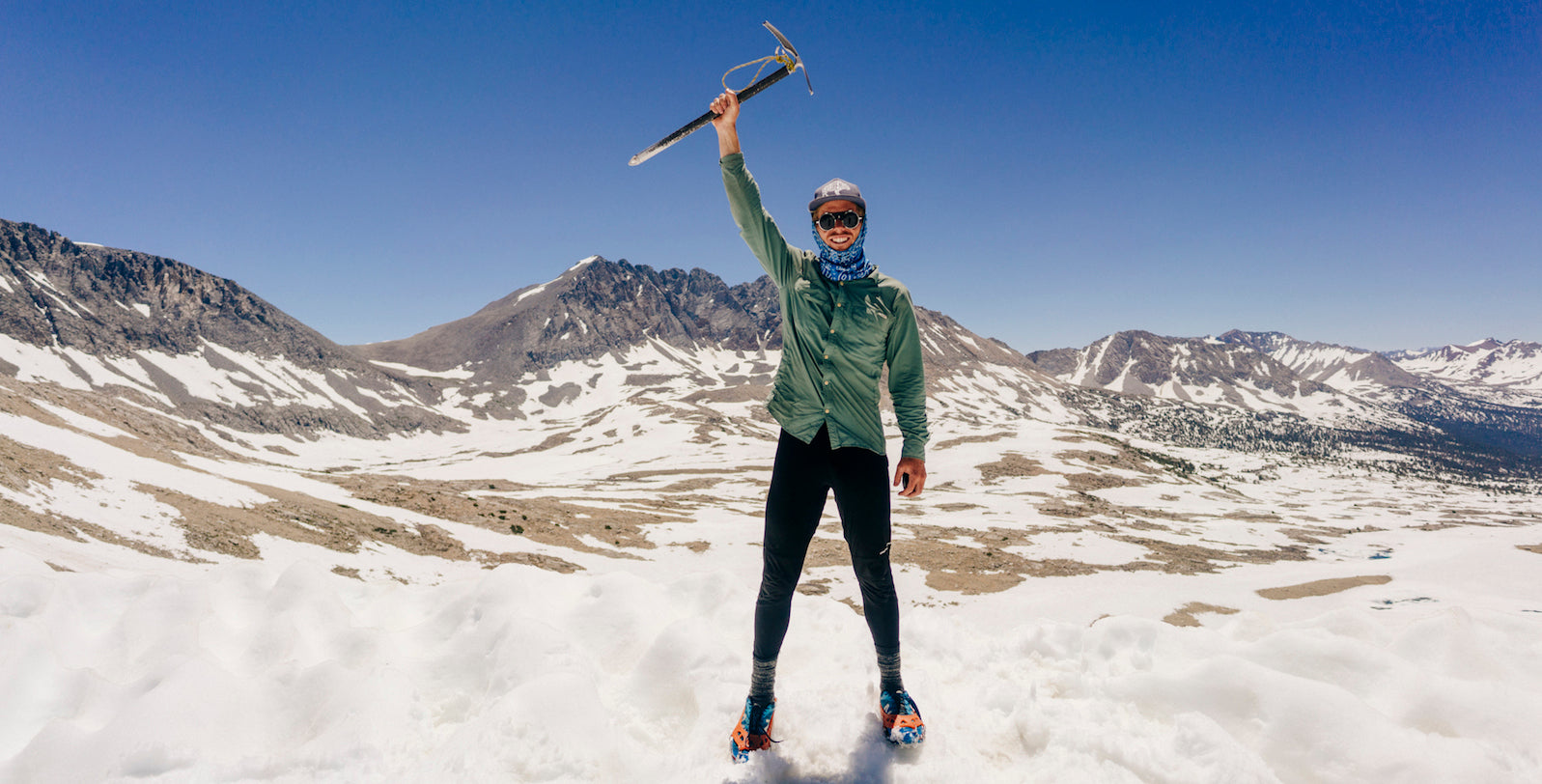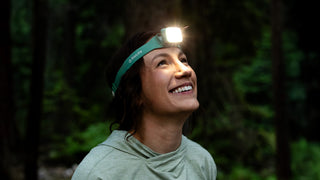(It's Actually A Lot Easier Than You Might Think)

This is a guest post from Michael Weybret, Editor-in-Chief, Do Something Cool.
The New Year is upon us and the time is ripe for setting intentions and the time honored tradition of New Year's Resolutions. It is the perfect time to set new fitness goals, rededicate yourself to personal wellness, or to challenge yourself to change the way you impact the world around you.
In 2019 I am making a resolution to minimize my carbon footprint as much as possible, and I want you to join me. Now, some people hear “reduce carbon footprint” and quickly write it off. I get it, it can seem like a huge lifestyle change to try and live more eco-friendly, but it doesn’t have to be that scary. Let’s take a quick look at what carbon footprint actually means. By definition, Carbon Footprint is the amount of carbon dioxide and other carbon compounds emitted due to the consumption of fossil fuels by a particular person or group.
Reducing that footprint doesn’t require much in the end, just minimizing your reliance on certain comforts and replacing them with more carbon neutral practices. It is not as much a shift in lifestyle, as a shift in thinking. Look at it this way: if you are an experienced backpacker or even just a weekend car camper, you’re well on your way to reducing your carbon footprint. It all starts with becoming more aware of your personal impact on the environment and how much carbon your actions (commuting, shopping, etc) actually emit into the atmosphere. You don’t have to change your entire life, become a new person, grow dreads and start walking around barefoot all the time, you just need to start thinking green.
This blog will show you how you can use a few backpacking principles in your daily life to create easy eco-conscious habits that will make the planet, and you, very, very happy. My Outdoor Resolution is to reduce my carbon footprint and leave Mother Earth in a happier state than I found it in 2019. If you pledge to do the same, we can make a big impact.
Here are the simple things I am doing to reduce my footprint in the year ahead (and you can too):
#1 - Embrace Leave No Trace Principles at the Campsite & Beyond

We have all heard the term “Leave No Trace” while hiking or on camping trips. The basic idea is to leave only footprints, and take only photos, but there is a lot more to it than that. These 7 simple rules are the ethos behind living a sustainable, carbon neutral lifestyle when exploring nature and in our daily lives. When we consider the impact on the world around us in an outdoors setting, we can begin to see the impact we leave on the world every day. The rules of Leave No Trace are simple and easy to follow, but frankly, we all know we can do a much better job of following these rules, and I want to set a better example for my fellow outdoorsmen in 2019.
- Plan ahead and prepare.
- Travel and camp on durable surfaces.
- Dispose of waste properly.
- Leave what you find.
- Minimize campfire impacts (be careful with fire).
- Respect wildlife.
- Be considerate of other visitors.
Practicing LNT is more important today than ever before. Increased visitation to public lands is leading to erosion and disruption of natural areas and we all need to do our part protect our water sources, our trees, and the natural environment that we have left. We should challenge ourselves to be the best example of happy, low-impact campers as we can while spreading that message to our fellow nature lovers. If you practice this and stay conscious of your affect on the planet while enjoying the outdoors, I promise the healthy mentality and good habits will spill over into your daily life.
#2 - Rethink the Way You Commute

Did you know that 27% of greenhouse gas pollution in the US comes from the transportation sector?
Changing the way you get around is one of the easiest ways you can reduce your carbon footprint. Brainstorm time: what can you do today to 'green-ify' your commute?
Have you looked into the public transit available in your city? Is your work open to telecommuting one or two days a week? How about starting an office car pool - bring donuts for the gang and before you know if you could have an eco-friendly commuter revolution on your hands!
As a backpacker you learn how empowering getting around under your own power can be, not to mention how eco-friendly it can be. So for me, my first purchase of 2019 will be a bicycle (anybody in Southern California looking to sell their old road bike, hit me up!). Turning the odd trip to the grocery store or coffee shop into a bike ride is a sure fire way to make the planet, and you, happier. If you’re not sure if biking to work is for you, research bike share programs (and scooter shares) in your city. They are an easy way to transition into bike commuting and available across most cities in the U.S.
#3 - Dip Your Toe Into Solar

One of the best lessons of backpacking and camping is how easy (and liberating) it can be to reduce your energy consumption. Living off solar energy will help you look at your energy consumption differently, which will slowly mold your habits into more eco-friendly ones. I think you will be surprised to see how easy, smooth, and fun this transition is. Oh, I almost forgot to mention: it is stupid good for the environment.
Going solar in your home can seem like a daunting task, not to mention an expensive one. But really, it can be an investment. Many people who have gone solar report their savings have covered the cost within 5 years of their investment. You can quickly go from paying your electricity bill each month to actually selling power back to the grid. Across the country the cost of electricity is going up, and with many companies offering free solar quotes there has never been a better time to go solar.
But before you have a major buildout, consider making small changes to your daily routine using solar. Maybe it’s using a solar-powered lantern at your bedside table or charging your phone from an off-grid source. Little by little this helps you realize the potential of off-grid power at home. If you’re ready to give it a go, the BioLite SolarHome 620 is a packable and portable option to start filling your basic charging and lighting needs from the sun.
#4 - Start a Garden

Whether you have just a small space for a few potted plants or a enough room to start whole food forest, starting a garden is a great way to help the planet while getting more connected to it. Making a compost pile will help you keep your garden happy and healthy with plenty of nutrients while also helping you keep track of and reuse any food waste. Growing your own fruits and vegetables will give you a great excuse to enjoy the fresh air and sunshine while getting your hands dirty in the soil. Perhaps most importantly though, you will learn valuable lessons about energy independence and our human connection with the natural world around us. It really is a win win.
When I first started backpacking I learned a lot about food consumption and food waste, and growing your own food can do the same by teaching you to appreciate the energy that goes into your food. Americans throw out 150,000 lbs of food each day. This takes an enormous toll on our environment in terms of wasted energy to grow crops and the greenhouse gasses they release at landfills. Starting your own garden is a great way to do your part and set a positive example in your neighborhood.
#5 - Watch Your Single Use Plastic.
One of the most powerful things we can do as consumers to reduce our footprints is to wean ourselves off our reliance on single use plastic (grocery bags, straws, etc).
As a camper we have durable packs, stuff sacks, and re-usable containers that we rely on during off grid trips -- we can use those during the week, too! This year, tell the deli you don't need a bag when they hand you your sandwich. Keep a tote or stuff sack in the front of all your bags for groceries. If you do forget and bring a plastic bag home, see if you can challenge yourself to use it 5x around the house before you let it go (guess what, it works as a reusable bag, too!). When it comes to plastic around the house, consider beeswax food wraps as an alternative to plastic wrap or Ziplocs. They are a plastic-free option for storing food and are washable so you can use them over and over again.
The key is being proactive. You are an eco-warrior! Don’t be afraid to tell the barista that you don’t need a plastic top on your coffee, ask your server to leave out the straws, and find creative ways to reduce your use of single use plastics. Share your strategies with your friends and family. You will soon see your eco friendly practices rippling out into the world as we all work to reduce our carbon impact on our earth.
You have a real opportunity in this new year to start fresh and leave a positive mark on the world. Reducing your carbon can be fun and it surely will be rewarding. Be the one to set an example this year, be a steward of the outdoors, be an advocate for companies and organizations working to protect our planet. There is no telling the positive impact you can have when you start trying to effect change on even the smallest level. So won’t you join me? Because, for better or for worse, we are all in this together.
What do you want to accomplish in the outdoors this year? Submit your Outdoor Resolution here & Gear Up for 2019 Adventures with our Outdoor Resolutions Giveaway!


